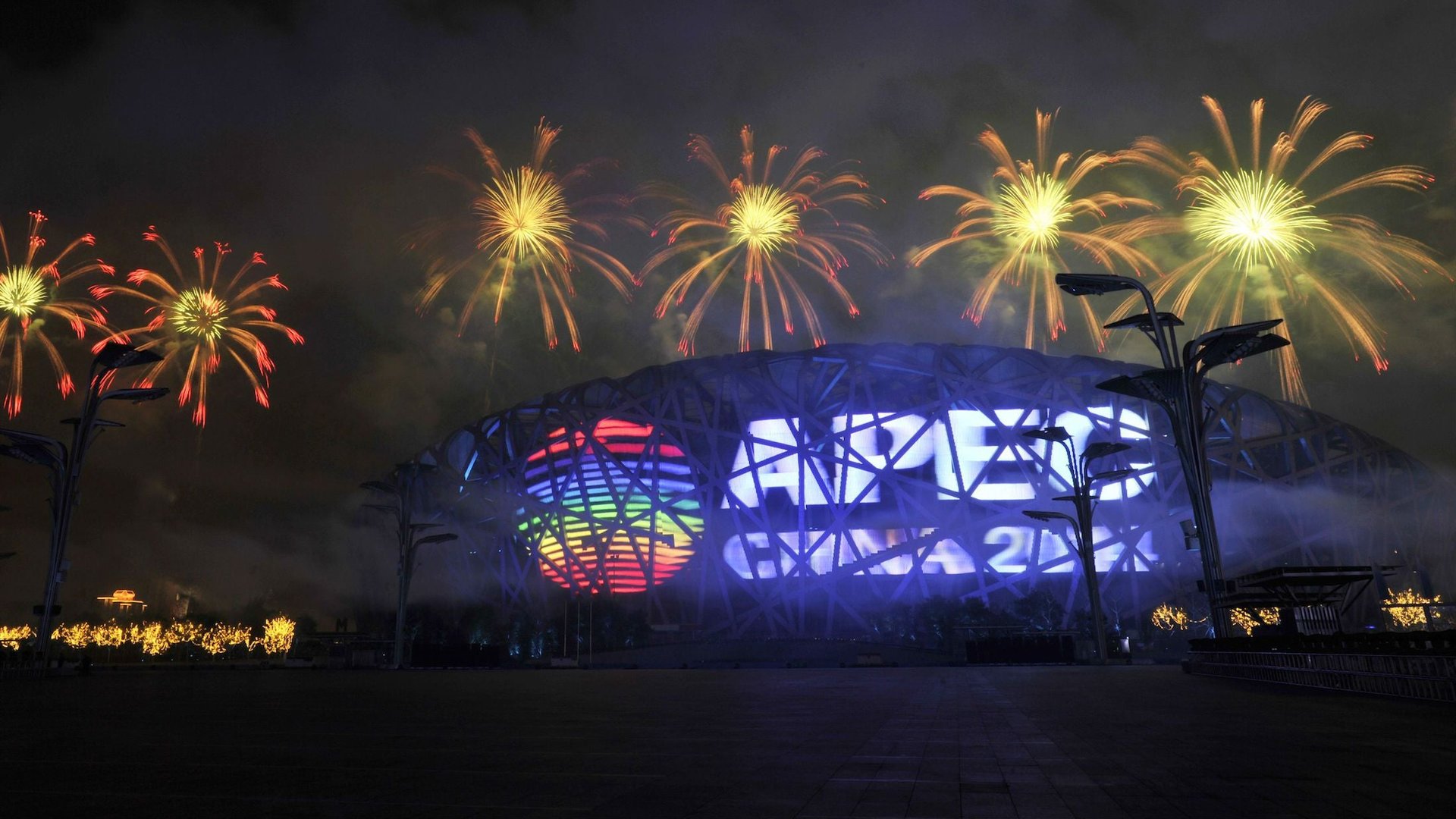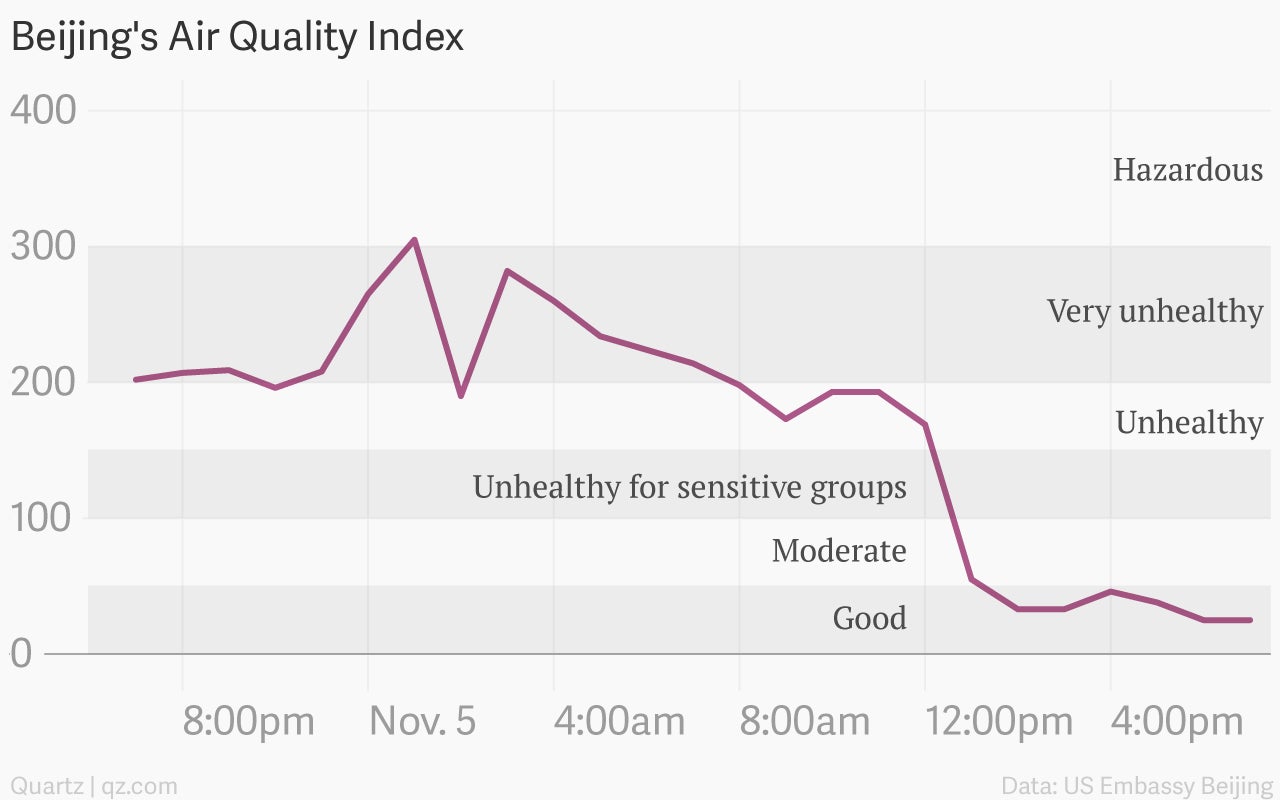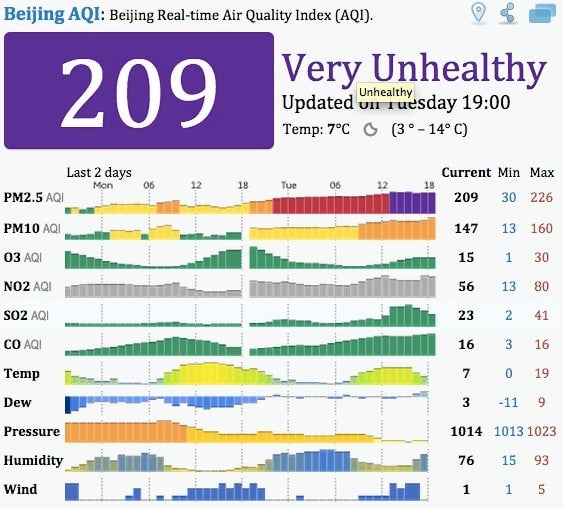Beijing’s attempt to scrub the air before APEC is shaping up to be a huge fiasco
China has been pulling out all the stops for world leaders, from US president Barack Obama to Japanese prime minister Shinzo Abe, who are converging on the capital for the Asia-Pacific Economic Co-operation summit on Friday. But the government’s ambitious campaign to clean up its noxious levels of smog and present a new and improved Beijing is not going smoothly.


China has been pulling out all the stops for world leaders, from US president Barack Obama to Japanese prime minister Shinzo Abe, who are converging on the capital for the Asia-Pacific Economic Co-operation summit on Friday. But the government’s ambitious campaign to clean up its noxious levels of smog and present a new and improved Beijing is not going smoothly.
Despite massive disruption, the air is still terrible
Everything from small outdoor barbecue stands to steel mills within 200 miles of Beijing have been temporarily shuttered. Schools are closed, as are marriage registration and passport centers, all in an attempt to keep vehicles off the roads. Public sector workers are getting a six-day holiday and residents have gotten notes in their apartment buildings asking them not to “go out often” or honor their deceased ancestors by burning clothing and ghost money in the street. Still, with the summit kicking off on Nov. 7, Beijing’s air has barely reached heathy levels. According to readings from the US Embass, the city’s air quality index (AQI) only dropped below 50, the level considered safe to breathe, this afternoon. (PM 2.5 refers tiny particulate matter in the air that is small enough to enter your blood stream and cause major damage.)

With only light winds to sweep away lingering air pollution, the forecast for Nov 8-11 is for “light to medium” smog. Air quality during the summit may look more like it did yesterday:

Beijing citizens are not happy
Annoyed at the restrictions on their daily lives, Beijing residents have taken to Chinese social media to complain that the government cares more about the lungs of foreign leaders than its own citizens. In response to a fireworks rehearsal yesterday that pushed the AQI past 400, one critic’s comment circulated the Chinese microblog Weibo widely until it it was deleted in the late afternoon (possibly by the blogger herself.) It read:
“Beijing’s air is terrible. The whole world knows this. These last few days have been better but that doesn’t mean you’ve managed it well. You were just lucky to catch the winds. Do we need to put on large-scale fireworks, this kind of unnecessary spectacle? Do Chinese people have no other way to host guests? I simply can’t understand.”
Other critics have started using an old Chinese idiom to voice their frustration that translates literally as, “the rulers can commit arson while the governed are not even allowed to light a lamp.” The phrase, originally a reference to the hierarchy of China’s old imperial system, is now used to describe any unfair situation. One blogger wrote, “Nothing has changed.” Another added, “This is the modern version of zhixu zhouguan fanghuo buxu baixing diandeng” A Chinese activist wrote on Twitter that the cleanup shows that “it’s not that pollution can’t be controlled—the point is that the health of the citizen’s isn’t as important as the government’s image!”
The economy suffers, and so does the environment
The sweeping closures of plants, restaurants, and businesses will only add to China’s slower-growing economy. Nationwide industrial production could fall by as much as half a percentage point for the months of October and November, Credit Suisse chief regional economist Dong Tao told Bloomberg. What’s more, the polluting steel mills and other plants are thought to have boosted their production ahead of the shutdown, and will increase it again when the summit is over, so there will be no net benefit in terms of lower emissions.
Hong Kong’s pro-democracy protester show up
The biggest PR failure may be the arrival of pro-democracy student protesters from Hong Kong, which has little to do with air quality but could be even if more damaging to the image that China wants to present. Members of the pro-democracy Hong Kong Federation of Students are trying to arrange a meeting with members of China’s legislature and the top advisory body in hopes of persuading Beijing to reverse its decision on how Hong Kong should implement direct elections. Turning away the students would look bad when world leaders are in town, but rejecting the students’ calls for democracy while China is on the international stage could cast a major cloud over the summit—especially if the skies are cloudy to begin with.